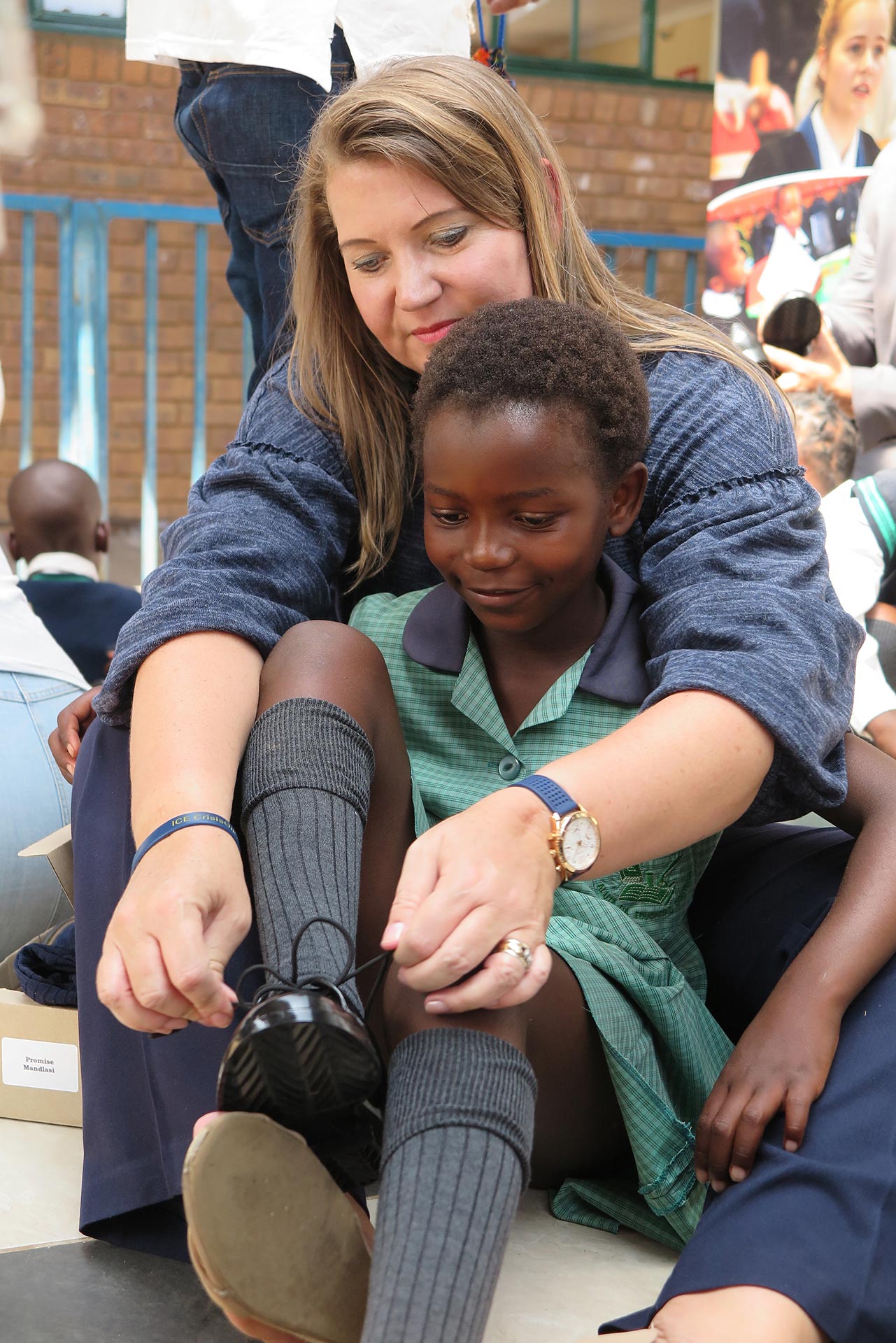Changing waste into school shoes a step towards realising a circular economy
Drickus Maartens • February 7, 2020
Ms Delanie Bezuidenhout, general manager: My Walk – an innovative, joint initiative by Netcare and Adcock Ingram Critical Care – and one of the Grade 2 learners at Chivirikani Primary School who couldn’t wait to put on her new shoes.
The collection of used, non-hazardous PVC drip bags, oxygen masks and associated tubing from participating
Netcare hospitals, to be recycled into shiny new school shoes, is contributing to reducing healthcare waste to landfill and associated greenhouse gas emissions that is harmful to the environment.
“Netcare and Adcock Ingram
Critical Care’s My Walk initiative embraces the concept of a circular economy, as it extends the usefulness of the PVC material from a single-use plastic to a recyclable, re-usable product. In doing so, the initiative not only contributes to environmental sustainability but also to addressing real needs in our society,” says Delanie Bezuidenhout, General Manager of the My Walk initiative.
“Millions of learners in South Africa unfortunately still don’t have school shoes to wear, and go to school barefoot or without the appropriate shoes. In addition to providing learners with much-needed shoes that will make their daily educational journey easier, the initiative simultaneously helps to save scarce resources.”
“During 2019, 18.8 tons of PVC were collected for recycling through the efforts of the My Walk initiative, which is enough to make 23 000 pairs of new school shoes. Aside from preventing the waste of nearly 19 tons of useful material that would otherwise add to the country’s landfill burden, we also prevented 1.5 tons of greenhouse gasses from polluting the atmosphere for each ton of PVC material that we recycle and repurpose,” explains Netcare’s environmental sustainability manager, Johan Durand.
“In addition, if we compare the amount of energy it takes to manufacture PVC from scratch with the amount required to produce school shoes from the recycled PVC, it results in a saving of more than 5GWh from 18.8 tons of recycled material. To put this into perspective, 5GWh of electricity is enough to provide power for nearly 1 200 people for an entire year.” This number is based on statistics by the World Bank on the average electricity consumption per person in South Africa in 2014,” adds Durand.
According to Bezuidenhout, the My Walk initiative has gained momentum by doubling the amount of drip bags, oxygen masks and tubing collected from participating Netcare hospitals between 2018 and 2019.
“Twelve Netcare hospitals in Gauteng are already on board, and nine more will start participating in the initiative in the first quarter of 2020. We are projecting collection of 25 tons of recyclable PVC in 2020, enough to make some 33 00 pairs of shoes, and have set targets for collecting 35 tons next year, 45 tons in 2022 and by 2023 hope to upscale the project to recycle 55 tons.
“We therefore anticipate that the project will be able to dramatically increase production of school shoes in the years ahead, and yield even better environmental sustainability results and open up more small business opportunities as the initiative grows,” Bezuidenhout concludes.













